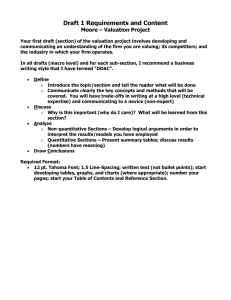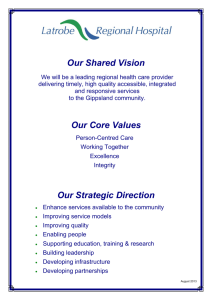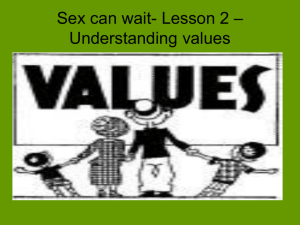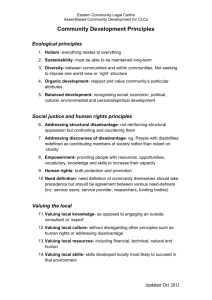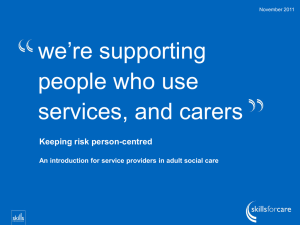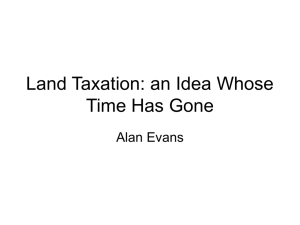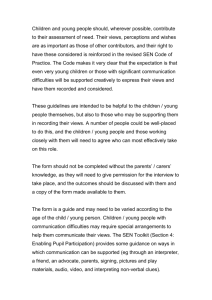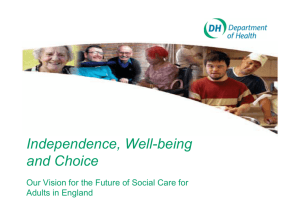VALUING PERSON-CENTRED CARE AND INDEPENDENCE
advertisement
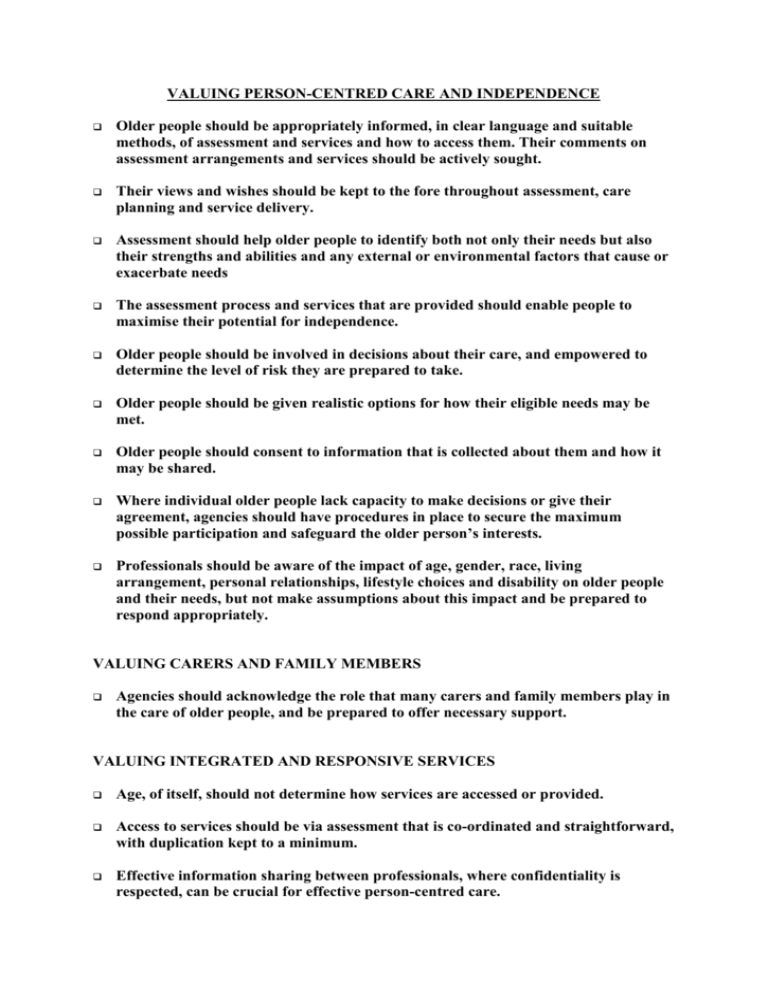
VALUING PERSON-CENTRED CARE AND INDEPENDENCE Older people should be appropriately informed, in clear language and suitable methods, of assessment and services and how to access them. Their comments on assessment arrangements and services should be actively sought. Their views and wishes should be kept to the fore throughout assessment, care planning and service delivery. Assessment should help older people to identify both not only their needs but also their strengths and abilities and any external or environmental factors that cause or exacerbate needs The assessment process and services that are provided should enable people to maximise their potential for independence. Older people should be involved in decisions about their care, and empowered to determine the level of risk they are prepared to take. Older people should be given realistic options for how their eligible needs may be met. Older people should consent to information that is collected about them and how it may be shared. Where individual older people lack capacity to make decisions or give their agreement, agencies should have procedures in place to secure the maximum possible participation and safeguard the older person’s interests. Professionals should be aware of the impact of age, gender, race, living arrangement, personal relationships, lifestyle choices and disability on older people and their needs, but not make assumptions about this impact and be prepared to respond appropriately. VALUING CARERS AND FAMILY MEMBERS Agencies should acknowledge the role that many carers and family members play in the care of older people, and be prepared to offer necessary support. VALUING INTEGRATED AND RESPONSIVE SERVICES Age, of itself, should not determine how services are accessed or provided. Access to services should be via assessment that is co-ordinated and straightforward, with duplication kept to a minimum. Effective information sharing between professionals, where confidentiality is respected, can be crucial for effective person-centred care. Where an older person requires the help of more than one agency, agencies should co-ordinate service delivery in the best interests of the older person. Promoting health and well-being is as important as reacting and responding to needs as and when they arise. The potential for rehabilitation should be explored at assessment and subsequently kept under review.
